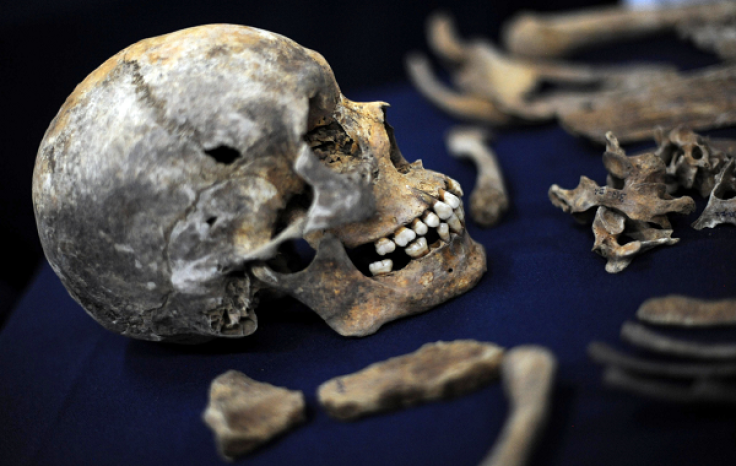Antikythera Shipwreck 2016 Update: Researchers Discover 2,000-Year-Old Human Remains On Ancient Ship In Greece

It was 1900 when sponge divers first discovered a 2,000-year-old wrecked merchant ship near the Greek island of Antikythera. The discovery led to the famous finding of a sophisticated clock that mimicked the motions of the sun, moon and planets called the Antikythera Mechanism. Now over 100 years later, researchers have unearthed yet another astonishing discovery from the Antikythera shipwreck: Human remains.
The discovery will lead to the first-ever DNA analysis of 2,000-year-old skeletal remains found under the sea, according to media reports Tuesday. Researchers from the Woods Hole Oceanographic Institution found the bones buried under a half-a-meter of pottery artifacts and sand on Aug. 31 at the shipwreck site – which is about a 10-minute boat ride away from Antikythera Island in the Aegean Sea.
Ancient-DNA expert Hannes Schroeder from the Natural History Museum of Denmark in Copenhagen will analyze the bones, including large pieces of skull, dental remains and both petrous bones – dense bones located behind the ears – which are particularly crucial because the petrous bones preserve DNA more efficiently than any other part of the skeleton or teeth. Schroeder’s analysis will begin once the team gets permission to extract the bones from Greek authorities.
According to Schroeder, it will take at least a week to learn if the sample actually contains any usable DNA and then a couple of months to sequence the sample and analyze the results. Should Schroeder manage to get some sort of results from the DNA sample, the discovery could lead to a better image of the sailors on the ship – which dates back to 65 BC – and the people of Antikythera during that time period.
Researchers have found a plethora of artifacts during excavation of the Antikythera shipwreck over the years. The Antikythera Mechanism, for example, has become known as the "ancient Greek computer.”
In June, an international team headed by the Hellenic Ministry of Culture and Sports and Woods Hold Oceanographic Institution found 60 relics from the wreckage, including gold jewelry, luxury glassware, pieces of marble sculptures, incense and resin, ceramic decanters, a bronze spear from a statute and an object divers believed may have been a weapon.
© Copyright IBTimes 2024. All rights reserved.












